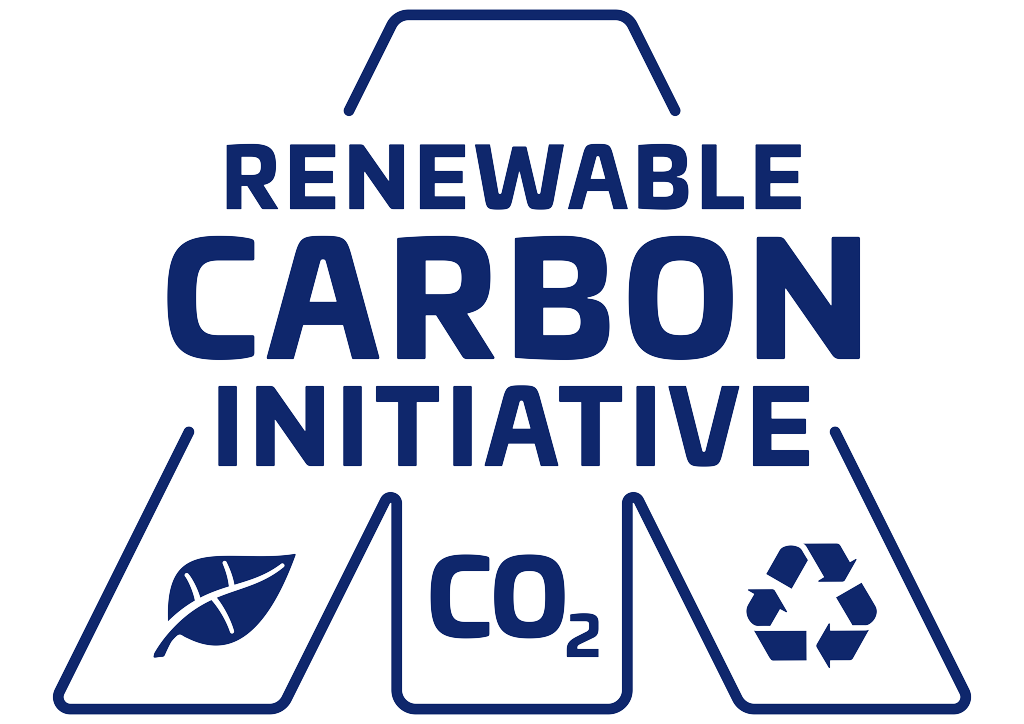
The European Commission’s initiative to boost biotechnology and biomanufacturing in the EU, published in March 2024, should be swiftly implemented to accelerate the EU’s transition to renewable carbon sources. To strengthen the EU’s competitiveness, reach net-zero and to cut reliance on imports of fossil raw materials and products, not only biomass but also recycled and CO2-based carbon sources will be needed.
In its latest publication, the Renewable Carbon Initiative (RCI) calls on the Commission to focus on these aspects in the action plan to accelerate the transition away from fossil feedstocks:
1. Ensure alignment with EU circular economy and industrial sustainable carbon initiatives to promote all sources of renewable carbon
More than 90% of chemical production is still based on fossil carbon sources from the ground. The Commission recognises that all alternative renewable carbon feedstocks (sustainable carbon from biomass, recycled waste and CCU) will play a part to make the transition away from fossil feedstocks.
This underlines the need to ensure consistency with other EU initiatives aimed at promoting the transition to renewable carbon sources, such as the Circular Economy Action Plan, the Sustainable Carbon Cycles Initiative and the Industrial Sustainable Carbon Management Strategy. Alignment is crucial in a number of aspects, e.g. in what is considered ‘sustainable carbon’ across different feedstock sources (biomass, CCU, recycling etc.). The recent call for a policy package on sustainable carbon cycles by the Netherlands, France, the Czech Republic and Ireland, also underlines the need to overcome barriers between sectors and create a consistent and comprehensive framework.
2. Accelerate action to stimulate market demand for bio-based and other renewable carbon feedstocks
The main barrier to increase the use of bio-based feedstocks – as well as other renewable carbon feedstocks – is the lack of market demand. Weak demand is explained by the fact that fossil feedstocks remain cheaper as their price does not reflect the costs of their negative climate externalities. It will not be possible to transition away from fossil feedstock in the EU without addressing this market failure through policies.
Stimulating market demand is essential if the EU is to develop a thriving and world-leading renewable feedstock manufacturing industry. It must be one of the cornerstones of the EU’s industrial policy moving forward, as called for by industry in the Antwerp Declaration and by Mr Enrico Letta in his report on the Future of the Single Market.
An accelerated impact assessment of options to stimulate demand for renewable carbon feedstocks, not only bio-based, should be the main priority in the follow-up to the initiative. RCI will support the follow-up with evidence and dialogue; among others through a comprehensive project that identifies and analyses policy measures and their effectiveness in accelerating the shift to renewable carbon. It is already clear that a secure legal framework is needed to unlock investments – may it be through renewable carbon content targets in product-related legislation or other means.
3. Ensure a clear pathway for the transition of fossil manufacturing to manufacturing based on renewable carbon feedstocks
Key aspects:
- Repurpose chemical plants that use fossil feedstocks today to use bio-based and other renewable carbon feedstocks in the future
Review life cycle assessment of fossil-based and bio-based products to ensure equivalence of treatment
Define fair sustainability criteria, in line with the Renewable Energy Directive and the EU Taxonomy.
Ensure access to all types of feedstock
Refine the definition of biomanufacturing to explicitly include all physical, chemical and thermochemical processes that can be run on biomass or other renewable feedstocks.
Find the position paper here: https://renewable-carbon.eu/publications/product/swift-implementation-of-eu-biotech-and-biomanufacturing-initiative-is-key-to-strengthen-eu-competitiveness-and-accelerate-defossilisation-pdf/
About Renewable Carbon Initiative (RCI)
The Renewable Carbon Initiative (RCI) is a global network of more than 60 prominent companies dedicated to supporting and accelerating the transition from fossil carbon to renewable carbon for all organic chemicals and materials.
The overall mission of the Renewable Carbon Initiative (RCI) is to fully replace fossil carbon with renewable carbon sources, including biomass, CO2 and recycling. This is the only way for chemicals and materials to become net zero and part of the circular economy – part of a sustainable future! RCI is led and supported by a wide range of different stakeholders in the chemicals and materials industry. These include brands, major suppliers, large manufacturers, SMEs, start-ups and research institutes. RCI has established a unique approach supported by a broad alliance of stakeholders from different sectors.
Within RCI, the Recycling Working Group (WG) addresses specific recycling issues. As a first step and as one of its first activities, the WG Recycling publishes this position paper.
Disclaimer: RCI members are a diverse group of companies addressing the challenges of the transition to renewable carbon with different approaches. The opinions expressed in these publications may not reflect the exact individual policies and views of all RCI members.
Supplier
European Commission
Renewable Carbon Initiative (RCI)
Share
Renewable Carbon News – Daily Newsletter
Subscribe to our daily email newsletter – the world's leading newsletter on renewable materials and chemicals









